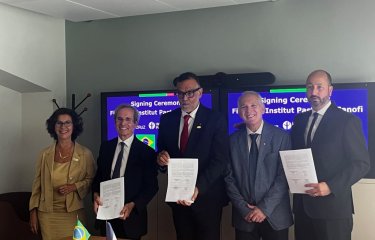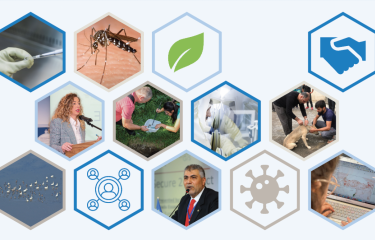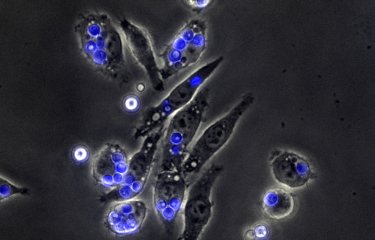Guinea remains marked by the Ebola virus outbreak, which highlighted the overall weakness of its health systems. It coud still be the scene of emerging zoonotic diseases with epidemic potential. A better understanding of the conditions for the emergence of those zoonosis and the good practices allowing their detection and prevention is therefore essential to reduce the risk of (re) appearance.
As part of the LAB-NET project coordinated by Expertise France and implemented by Institut Pasteur and Fondation Mérieux, a training course is being led by the Institut Pasteur in Guinea, to strengthen the expertise of Guinean laboratories in the detection and surveillance of pathogens circulating in the area. A theoretical and practical training on the “One Health” concept was organized from 15-25 March 2017 in the city of Dalaba, in collaboration with the Institut Supérieur des Sciences et de Médecine Vétérinaire (ISSMV) and the Friedrich Loeffler Institute (Germany).
26 scientists, veterinarians, pharmacists and technicians working in laboratories and research centers throughout Guinea participated to this training. They attended theoretical classes on the “One Health” approach, zoonoses, viral emergences, Guinean ecosystems delivered by experts from Guinea, Institut Pasteur in Guinea and Paris, ANSES in Lyon (France), or CIRAD in Thailand. The Institut Pasteur in Guinea benefited from the rural environment of the Dalaba region, located 320 km from the capital and has been assisted by the ISSMV staff to organize several practical sessions and field activities such as demonstrations of capture-identification-release of bats, rodents and mosquitoes or blood sampling on cattle. A complete molecular biology laboratory has been set up by the Institut Pasteur in Guinea for the duration of the training at the ISSMV. Thanks to this laboratory techniques of genetic diagnosis (extraction of DNA, qPCR) and serology (ELISA) were carried out. Emphasis was also put on biosecurity, particularly on personal protective equipment (PPE) and on collective protection.
This high-level and complete training is the third one organized by the Institut Pasteur in Guinea. Two theoretical one-week courses on “molecular biology applied to the genetic and serological detection of pathogens” were organized in November 2016 and February 2017.





